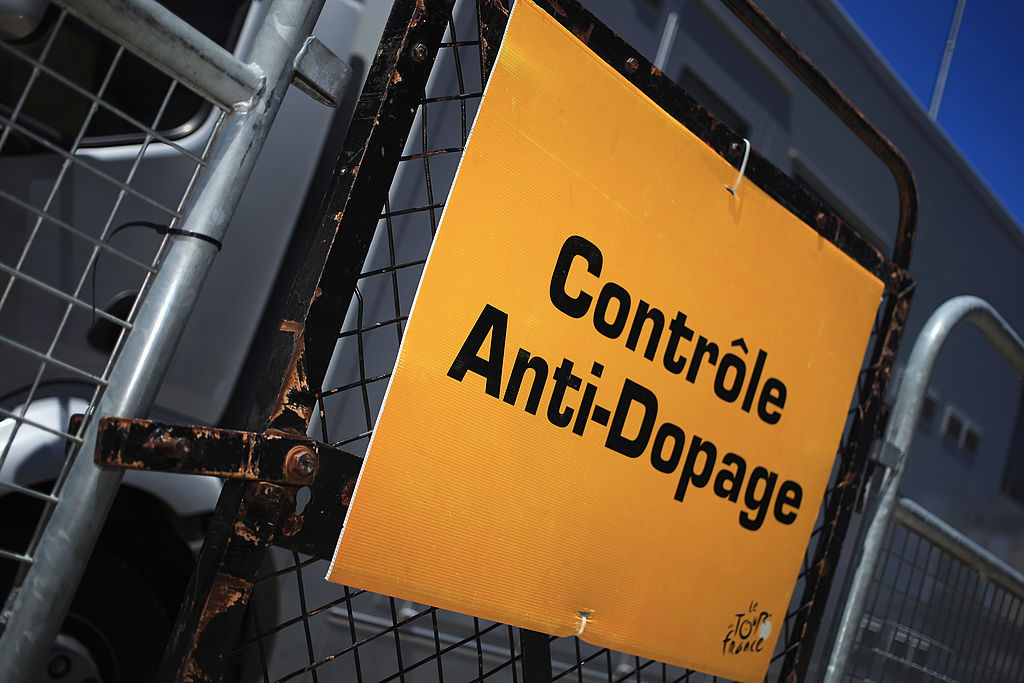More sensitive blood doping test could debut in Tokyo Olympic Games
Gene expression test could detect EPO use for several months

A more long-ranging test for blood doping could be validated and put into use in time for the Summer Olympic Games in Tokyo next year. According to the Guardian, International Olympic Committee president Thomas Bach announced the news at the World Conference on Doping in Sport in Katowice, Poland on Tuesday.
The current tests to detect traces of blood-boosting Erythropoietin (EPO) drugs can detect the drug only for a few hours after injection. Because EPO is also made naturally by the human body, tests rely on changes made to the drug in the body after injection.
A number of sports have gone further to institute the biological passport - a way to measure changes in blood values over time to flag suspected use of EPO or blood transfusions.
But the new test looks at a "molecular signature" of what happens at the genetic level that lasts up to several months after blood doping.
"With research on genetic sequencing progressing well, this new approach could be a groundbreaking method to detect blood doping, weeks or even months after it took place," Bach told the conference.
"If approved by the World Anti-Doping Agency, such gene testing could be used at the Tokyo Olympics. These new methods will again strengthen deterrence. We want the cheats to never feel safe, anytime or anywhere."
Rasmussen on micro-blood doping study: I told you so
Preidler charged with fraud in Operation Aderlass doping inquiry
Preidler admits to blood extraction as doping investigation widens
Denifl confesses to blood doping in police interview
Petacchi, Koren, Durasek, Božič named in Aderlass doping ring
Bahrain-Merida's Milan Erzen under UCI investigation
More damaging questions as links uncovered between Erzen and Aderlass doping doctor
Denifl and Preidler handed four-year bans after blood doping confessions
The new test looks at changes to the expression of a number of different genes in the body that are specifically changed by the use of blood-boosting drugs or transfusions. A number of researchers have been working on 'omics'-type tests for doping, including Yannis Pitsiladis, a member of the IOC medical and scientific commission.
Get The Leadout Newsletter
The latest race content, interviews, features, reviews and expert buying guides, direct to your inbox!
Bach said that even if the test is not ready for Tokyo, the IOC will hold onto more samples for retrospective testing when the test is validated.
"This will add to the fact the pre-Games testing programme will be the most extensive ever, aimed to maximise both detection and deterrence," Bach said.
The IOC's last Summer Games in Rio in 2016 were marred by the Russian doping scandal that led to the exclusion of many of the country's athletes from competition. The outgoing WADA president Craig Reedie acknowledged that "Clearly there have been times when elements within the system have failed to live up to expectations," and called the state-sponsored doping in "The worst case of system failure, certainly in my time as president, if not in the entire history of the anti-doping movement".
"The revelations exposed by the WADA-led investigations of Richard Pound and Richard McLaren forced a sea change in attitude around the globe. Confirmation of that unprecedented level of cheating left the sports world in no doubt of the scale of the job facing Wada and has reawakened all stakeholders to the importance of sports integrity."
Operation Aderlass earlier this year showed cycling that blood doping is still happening at the highest level even with the biological passport, with Austrians Georg Preidler and Stefan Denifl, Slovenians Kristijan Koren and Borut Bozic, Croatian Kristijan Durasek and former racer Alessandro Petacchi all banned following the investigation.
A study by Danish researchers found that re-injecting just 135 millilitres of one's own blood could yield a five per cent performance increase.
The UCI said it was considering employing the International Testing Agency for anti-doping efforts, while its independent agency - the Cycling Anti-Doping Foundation - said such a move could reduce the amount of anti-doping resources available to cycling.
Cyclingnews is the world's leader in English-language coverage of professional cycling. Started in 1995 by University of Newcastle professor Bill Mitchell, the site was one of the first to provide breaking news and results over the internet in English. The site was purchased by Knapp Communications in 1999, and owner Gerard Knapp built it into the definitive voice of pro cycling. Since then, major publishing house Future PLC has owned the site and expanded it to include top features, news, results, photos and tech reporting. The site continues to be the most comprehensive and authoritative English voice in professional cycling.